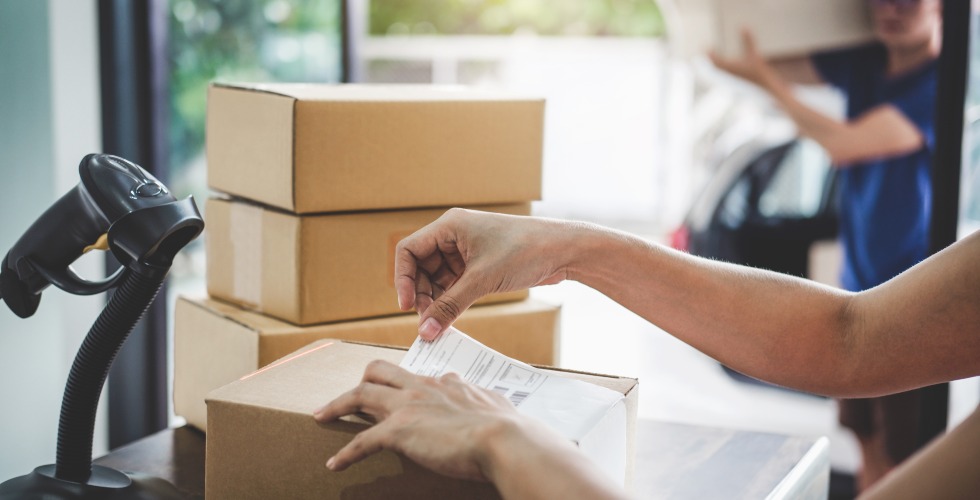DDP v DAP ecommerce delivery. What’s the difference and which is best for you?
DDP (Delivered Duty Paid) and DAP (Delivered at Place) are two common delivery terms used in international ecommerce shipping and logistics. The main difference between them is who is responsible for customs duties and taxes.
What is DDP (Delivered Duty Paid)?
With DDP, parcels are delivered to your customers and any duty and taxes are invoiced back to you.
You can include these anticipated costs in your selling prices, or as an additional upfront payment request, so you don't lose out. This also means your customer can see a fully landed price on your website without any surprise additional costs when their parcel arrives.
What is DAP (Delivered at Place)?
For DAP, customers pay their own taxes, duties, and fees through a secure portal. They can also securely upload their ID if this is a customs requirement within their country. This process takes longer and is more involved for the shopper, but in some markets and for some order values it is the preferred solution.
Each of the options requires slightly different paperwork
For DAP, the following documents are usually required:
- Commercial invoice showing things like product value, quantities, weights, cointry of origin and HS code.
- Bill of lading outlining the terms of transport
- Certificate of origin may be required
- Packing list showing products, packaging, and dimensions of the shipment
For DDP, the following documents are usually required:
- The documents required for DAP
- Customs invoice to calculate import duties and local taxes
- Import license - if the products are subject to import quotas or other restrictions
Which option is best for you depends on your and your customers’ specific circumstances, and there is not always a one-size-fits all approach.
For example, a customer who wants to avoid any additional charges or complications with customs may find DDP the better option.
You, as the seller, take on all the risk so the buyer has confidence their order will get shipped without any issues and will arrive at their doorstep as expected.
However, if you, as a seller, are looking to make the process as easy for yourself as possible and currently don't have the time or solution to set up DDP then DAP could be best. But there are certain risks involved.
The buyer is responsible for taking care of all import formalities, so there may be possible delays at customs if they’re not familiar with the process.
You’ll need to be sure they are already experienced or, if not, you can give them guidance to deal with the extra paperwork and arrange collection from the customs broker (typically the final mile delivery company) and pay additional fees for customs.
It also depends on what you're selling and where to
Import sales taxes will apply in most cases and the amount depends on the product type and which country you are sending to.
There will also be a customs clearance charge to pay which varies too.
However, customs duties will not always be charged. Countries or trading blocks (like the EU), have their own thresholds for duties. So shoppers in some countries can spend £100s with you and pay no duties, whereas others will be charged duties on smaller purchases.
The country of origin of a product is also important. Some countries (and blocks) have trade deals which allow reduced tariffs for locally made products.
We recommend this resource for more details and advice: https://www.great.gov.uk/
Your choice of parcel delivery provider will be crucial too
Choosing DAP or DDP will mostly come down to what your priorities are and what you feel comfortable with, but specific regulations and policies of the country you are sending your order too may also play a part in your decision.
However, it's also important to know that the solutions available will be determined by their availability i.e. most shipping companies provide DAP around the world, but DDP solutions are usually only available to a select number of countries and that list will be different for each delivery company.
DDP requires complex data management and a platform for collecting payment (and sometimes ID) from the shopper. So it's also important that the shipping company providing the DDP solution can work with your ecommerce technology and processes.
It's therefore always a good idea to consult with providers like Asendia to determine the best option for your business and what is available from them.





